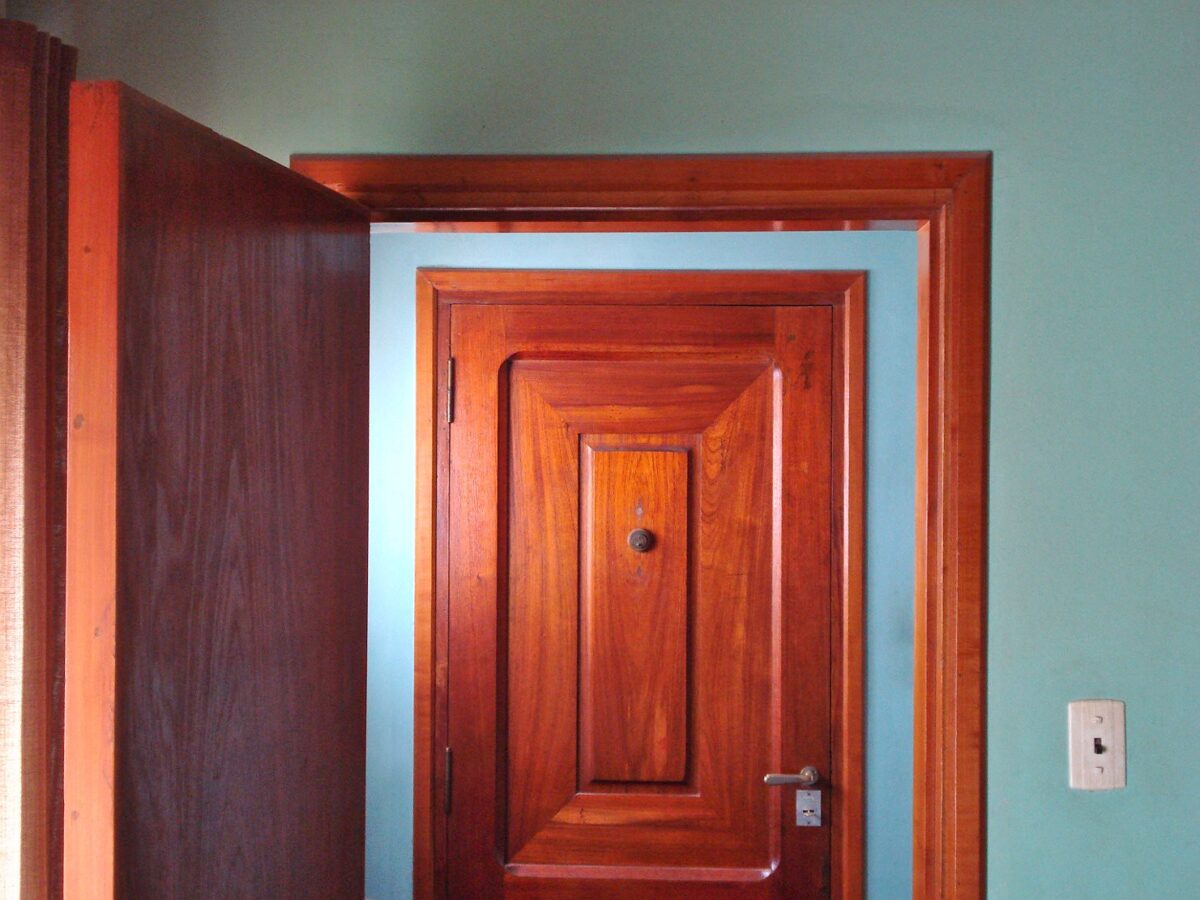‘That’s Not How Doors Work’: The Economist Mocked on Twitter For Nonsensical Analogy Comparing Pandemic to a Doorway

Photo by Juan Pablo Lauriente via Flickr.
Have you ever used a door? You know, the movable rectangular panel, usually made of wood or metal, that separates rooms or covers the entrances to buildings and opens by sliding, spinning, or moving on a hinge? The Economist had Twitter users wondering if their staff had much experience with these magical objects known as “doors” when they tweeted that the Covid-19 pandemic was “like a doorway,” and “[o]nce you pass through, there is no going back.”
The pandemic is like a doorway. Once you pass through, there is no going back https://t.co/Pco8283aa4
— The Economist (@TheEconomist) December 28, 2021
“The new normal is already here,” said the article excerpt included in the tweet. “Get used to it. The era of unpredictable predictability is not going away.”
Only two paragraphs of the article are viewable outside of The Economist’s paywall, and they argue that 2022 will not see a reversion to pre-Covid policies, but instead we should expect a “new normal” of the “turmoil and bewilderment of the pandemic era.”
The article then makes a comparison to the Sept. 11, 2001 terrorist attacks and the new rules that were imposed on air travel. “Flying did not return to normal, nor did it establish a new routine. Instead, everything was permanently up for revision.”
That certainly sounds like a plausible argument that can be made to describe the ongoing development of Covid-19 policies, but it still doesn’t make sense to compare the pandemic to a doorway, which, as anyone who possesses enough functioning brain cells to register for a Twitter account (a patently low number, but I digress) understands, is a passageway that, in normal non-science fiction contexts, does not permanently seal itself off after you go through it once.
Predictably, Twitter users had an absolute blast dunking on The Economist for seeming to not understand how doors work, with several users jokingly worrying about people being trapped in their offices.
That’s not how doors work https://t.co/VFuGJulQ7w
— James Felton (@JimMFelton) December 28, 2021
— mar a lago delenda est (@silea) December 28, 2021
Doors: How do they work? https://t.co/ErmHueP8WU
— Caleb Howe (@CalebHowe) December 29, 2021
This is no time for jokes, there’s a headline writer stuck in the Economist’s offices.
— Bower Power (@So_Truculent) December 28, 2021
The offices of the Economist must be absolutely rammed with confused, upset people who’ve been forced to leave their lives behind them. https://t.co/WD2MXZC6OY
— Stig Abell (@StigAbell) December 29, 2021
I have this amazing two-way door idea I need to patent super quick. https://t.co/pbSl40Br2F
— Adrian Tchaikovsky (@aptshadow) December 29, 2021
I mean, you could have said “The pandemic is like… a heart valve”. Or a water slide. Or a Face tattoo! So many things. But no, you went for the one thing that when you pass through it, you can go back. https://t.co/pBD6tUSiCq
— Dara Ó Briain (@daraobriain) December 29, 2021
Everyone who writes for The Economist is trapped in their bathrooms until a new door can be built https://t.co/VFX4YLKthZ
— Patrick Monahan (@pattymo) December 29, 2021
I am begging you to think for a moment about your experience of using doors https://t.co/QWL9RNcRai
— Hannah Rose Woods (@hannahrosewoods) December 28, 2021
The pandemic is like a water bottle. Once you open it, there is no closing it. https://t.co/1uG2p0HRF2
— Payton Alexander (@AlexanderPayton) December 29, 2021
Several tweets even referenced Jorts the Cat, an orange tabby who found online fame in a viral AITA (“Am I The A**hole?”) Reddit post that detailed his workplace challenges with doors.
Even @JortsTheCat understands doors better than this.
— Dr. Heather Hinam (@SecondNatureMB) December 28, 2021
Did @JortsTheCat write this? https://t.co/yRskXbriBT
— Polly Pallister-Wilkins (@PollyWilkins) December 29, 2021
The post ‘That’s Not How Doors Work’: The Economist Mocked on Twitter For Nonsensical Analogy Comparing Pandemic to a Doorway first appeared on Mediaite.
from Mediaite https://ift.tt/3sJ7axt



0 comments